nestwell recently published its 12 symbiotic principles for hospitality. It is the first full-scale guiding framework of responsible wellness and slow hospitality for the hotel bedroom, bathroom and beyond.
The founders of nestwell curated an installation for the Hotel Interiors Experience (HIX) event in London last November, to bring focus on its 12 symbiotic principles for hospitality, released the following month.
The company was launched simultaneously with the HIX event. While the concept for nestwell was in development well before COVID became a global issue, it was during the beginning of the implemented restrictions and hard hit to the tourism industry that nestwell materialized.
The nestwell guiding framework was created to be accessible and adaptable while meeting the needs of investors, owners and operators. It encompasses guidelines for designing responsible wellness and regenerative mindsets, pointing to the hotel bedroom and bathroom ecosystem as a starting point.
The founders describe it as the first-ever set of guiding principles specifically curated for hospitality that incorporates the best of the WELL Standard, Slow Design, Design for Wellbeing and the World Green Building Council framework for health and wellbeing.
“We’ve created nothing on our own,” said Motti Essakow, co-founder of nestwell, in a phone interview with ArchiExpo e-Magazine. “We’ve reinvented the concept of wellness, combining the best of [what exists now.]”
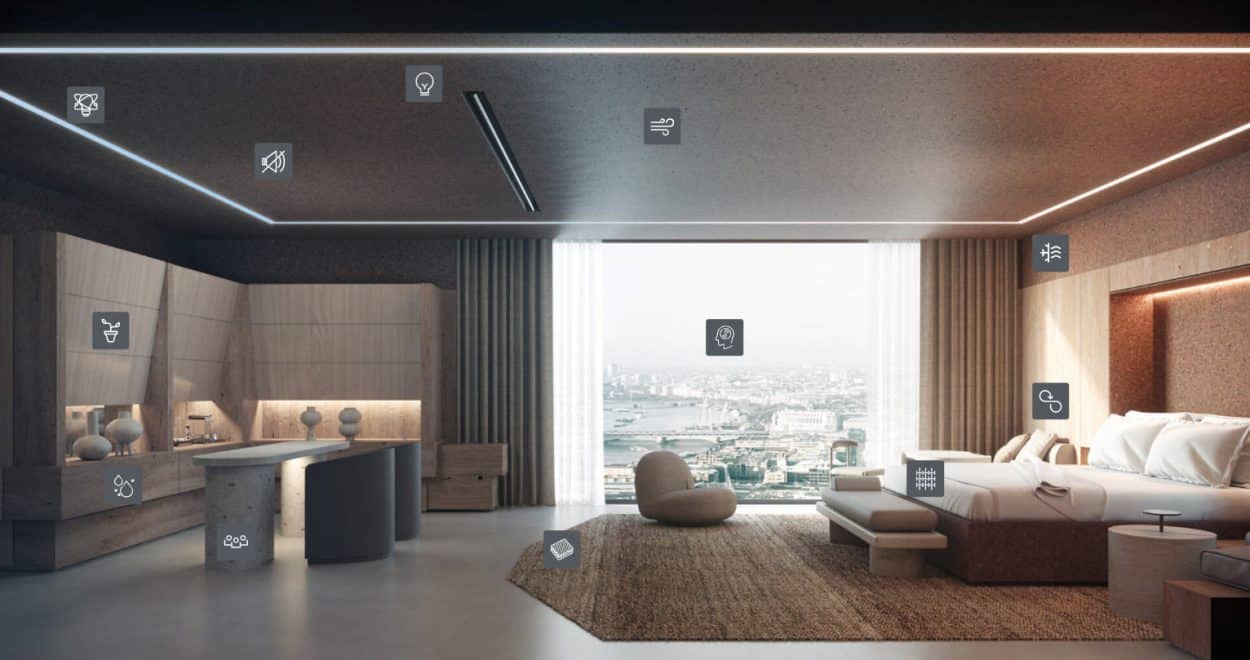
Motti Essakow has over twenty years of experience in the sustainable tourism sector, with an increasing interest in the WELL Standard which began in 2014 and was developed more for commercial real estate and residencies than for hospitality.
“When hotel management talk about wellness, they mostly talk about programs and activities. None of them have based the design on a full-scale set of principles. When hotel industry leaders talk about circadian lighting, they focus on the color, but we’ve introduced a circadian lighting system which changes color automatically per the time of the day.”
“Even the pioneers, spas and wellness retreats, they’re all focused on programs and activities instead of design. They say ‘Bring nature inside’ but no one is focused on the materials, clean technology, acoustics; the design part. Outside of hospitality, they are but not in this industry. It’s a completely new area. Intercontinental launched a wellness theme brand called Even Hotels, but those hotels were not designed based on a set of guiding principles. That’s the key to all of it.”
In fact, according to Motti Essakow, there isn’t a single WELL-certified hotel for its wellness bedrooms; a hotel in San Diego received a WELL certification in late 2019 for the hotel as a whole, not specifically for the bedroom. No other hotel, as of now, has received a WELL certification.
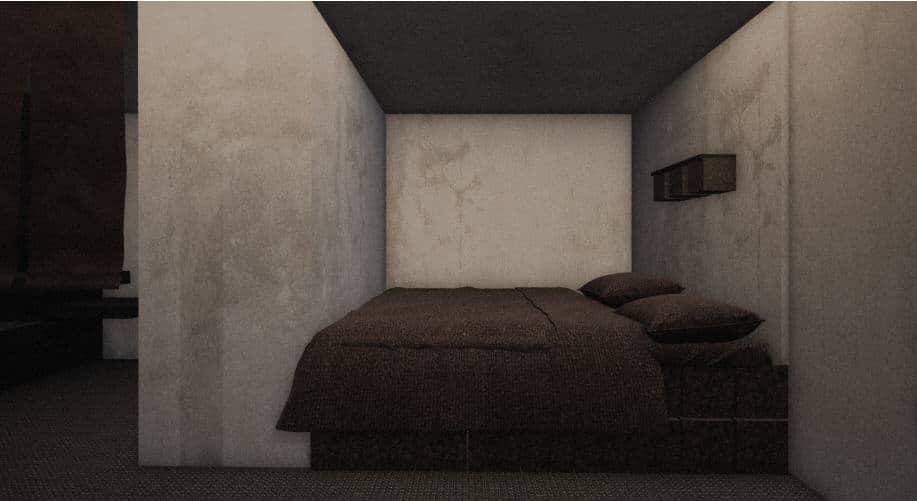
READ: An article published in early 2020; Are Hotels Ready for Wellness Certification?
Imagine, Bhutan became the first country worldwide to implement a happiness index for its citizens in 1972. It has since been dubbed the world’s happiest country. Fifty years later, the question of wellness is still on the table.
When the environment became of greater importance, global groups began launching eco-brands focused on wellbeing. Yet, according to Motti Essakow—who, a few years ago, assisted a hotel group in creating a happiness index for its organizations—, no one is referring to wellness as responsible wellness which combines people, planet, productivity and profit.
“Wellness is similar to sustainability; different people of different cultures have different interpretations of the word. Responsible wellness is a new term. It’s the next ‘green’.”
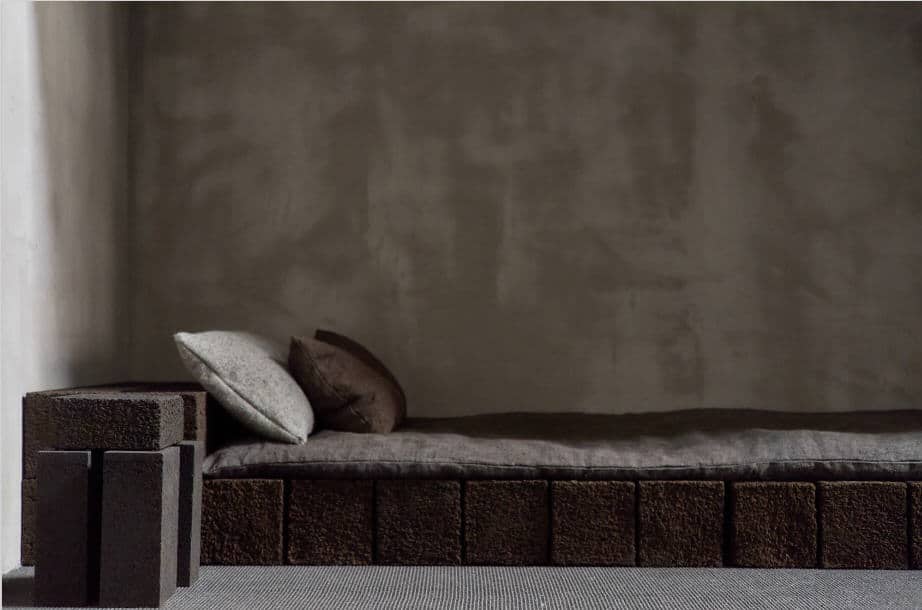
Considering himself a natural capitalist, a term coined by Paul Hawken who created Natural Capital Institute in California in 1998; Motti Essakow believes it’s important to show the connection between business and ideology.
“We quantify wellness in order to sell the concept to decision-makers, investors and other industry players. It’s about selling wellness and putting a number on it. We put a financial model behind the concept and compare it to a conventional model, showing how a wellness room can be cost-effective.”
Professionals in the hospitality industry can work with nestwell to integrate nestwell bedroom concepts into their hotel projects. There are 4 distinct nestwell room types—Recharge, Equilibrium, Tranquillity, Unplugged—developed in partnership with leading design studios. The rooms include products from nestwell brand partners. While said professionals can adapt the hotel design layout, the rooms must include the 12 key principles to receive the title of a nestwell room.
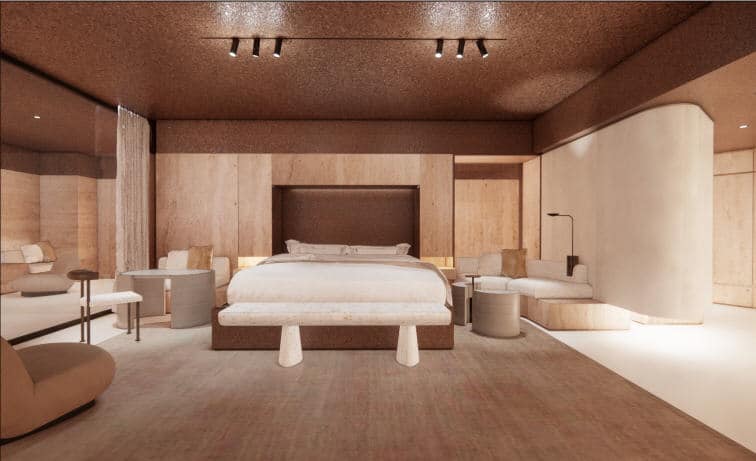
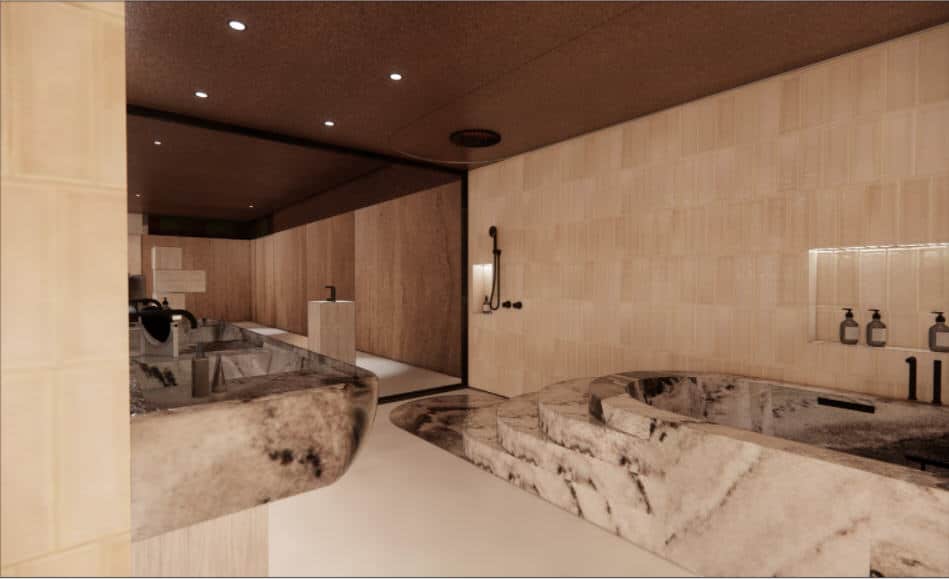
Here are a few of the 12 principles:
- Innovation: biomimicry and biophilia inspired indoor environment and experience leads to a better staying experience.
- Acoustic: Eliminate noise pollution and improve sound ergonomics through the identification and mitigation of acoustical comfort parameters.
- Light: Provide a bio-adaptive lighting environment and experience that supports and comforts the body’s circadian rhythm and enhances sleep quality, energizes the mind and body and positively impacts mood.
- Water: Improving the water footprint of a building, specifically focusing on the quality, distribution and control of water and targeting CleanTech water technologies and responsible water management.
- Materials: Improve and eliminate human exposure to harmful building materials with safer and life enhancing material compounds that contribute to the wellbeing of the building, its occupants and the surrounding natural ecosystem.
- Other principles include nourishment, thermal comfort, air quality, movement, textiles, community and mind.
READ: Interview. Organic-only Products and Materials at EDGE
Currently, nestwell has published “5 Key Experiential Features” on its website, but Motti Essakow has said this publication will soon be updated to include a 6th feature. Stay tuned!

Courtesy of Interview. 12 Symbiotic Principles for Hospitality by nestwell – ArchiExpo e-Magazine